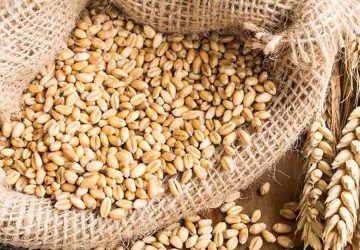Listen to the article
Yet another scandal has unsettled the Lebanese population, shedding light on the deep-seated corruption within the country.
It revolves around the delivery of wheat and rice into the Lebanese market, both of which are allegedly spoiled and a health threat.
A statement from the Consumer Association in Lebanon, warning of “carcinogenic rice” and “moldy wheat,” has triggered a wave of panic among consumers across the country.
According to the statement, “Twenty-four tons of carcinogenic rice and 4,506 tons of moldy wheat were distributed in Lebanon, despite a decision by the relevant authorities (Ministry of Agriculture) to ban their sale.” This highlights the extent of corruption across various sectors of the country at many levels, with each entity prioritizing its interests over the health of citizens.
The Consumer Association in Lebanon stated that it “is actively working with a group of lawyers to pursue legal action against the companies responsible for the crime of poisoning thousands of citizens.” In its statement, it urges “judicial and executive authorities, especially the Ministries of Agriculture, Economy and Health, to disclose the importer’s identity, locate the stores where this rice was distributed, pull out the remaining quantity from the market and ban the importation of this brand.”
The Facts
What happened exactly? Regarding the wheat, President of the Mill Owners’ Syndicate Ahmad Hoteit explains to This Is Beirut that “the ship carrying this grain docked in Lebanon 14 months ago and was intended to be delivered to the miller Chabarek.” As per Lebanese guidelines, “The cargo is usually unloaded into silos, sealed by customs after sampling; the importers can only access their merchandise once the Ministry of Agriculture’s test results are finalized,” explains Hoteit.
“The analysis results indicated that the cargo was compromised, and it wasn’t allowed to be unloaded,” says Hoteit. “The miller requested a retest at the laboratory, which was denied by the Ministry of Agriculture. Consequently, the miller turned to the judge of expedited matters in Metn. Along with customs representatives and an expert from the Ministry of Agriculture, they collected a fresh sample for testing. These tests were conducted in another state-accredited laboratory.”
In this context, Hoteit confirms that the results indicated that “the wheat was fit for consumption,” adding that “the Ministry of Agriculture, once again, refused to allow the cargo to be unloaded,” highlighting that these procedures are time-consuming.
He further mentions, “At the urgent request of the judge of expedited matters, a third analysis was carried out on the merchandise.” Once again, “The results confirmed the quality of the wheat.” Yet the Ministry of Agriculture remained steadfast in refusing to allow the cargo’s unloading.
However, “As the ruling of the judge of expedited matters carries the weight of an injunction, granting him the authority to act, the judge overseeing the case ordered, on February 29, 2024, the unloading of the cargo and promptly informed the Ministry of Agriculture of his decision.” The latter was made “based on the findings of the two analyses, both confirming the wheat’s good quality,” Hoteit reported. He believes that “this is when the information was disclosed, to stir public opinion.”
The Rice Issue
As for the rice, it seems that “an importer distributed this grain onto the market, despite it failing to meet current standards in Lebanon,” according to a source familiar with the dossier.
During an interview with This Is Beirut, Hani Bohsali, the President of the Union of Food Importers, mentioned that a sample of the “carcinogenic rice” highlighted in the Lebanese Consumer Association’s statement “is currently undergoing analysis,” and therefore, “it is not yet possible to comment on the matter.” It reportedly contains tricyclazole, a pesticide residue.
In this context, Bohsali believes that “the levels required by Lebanon for the specification of agricultural pesticide deposits are nearly unattainable as Lebanese standards are based on those of the European Union, which are very narrow (0.01 ppm), whereas in countries like Japan and the United States, the standard is 3.00 ppm. It is therefore 300 times higher than the European standard,” he observes.
According to Bohsali, “Lebanon should revise its standards regarding agricultural pesticide residues to serve Lebanon’s interests rather than those of other countries.”
He further added, reassuringly, “Based on documents from the United States and Japan, tricyclazole is not carcinogenic. It would be an overstatement to say that the Lebanese people are consuming carcinogenic foods and cereals.”
Supermarkets hold a similar view, stating that they only sell the merchandise after having obtained the approval of the Ministry of Economy.
The supermarket industry agrees upon the fact that “the standards in Lebanon are stricter than those in Europe and the United States,” and labeling the products as “carcinogenic” is considered “overblown and unfounded.”
When contacted by This Is Beirut, the Ministry of Agriculture refused to comment on the two cases.





